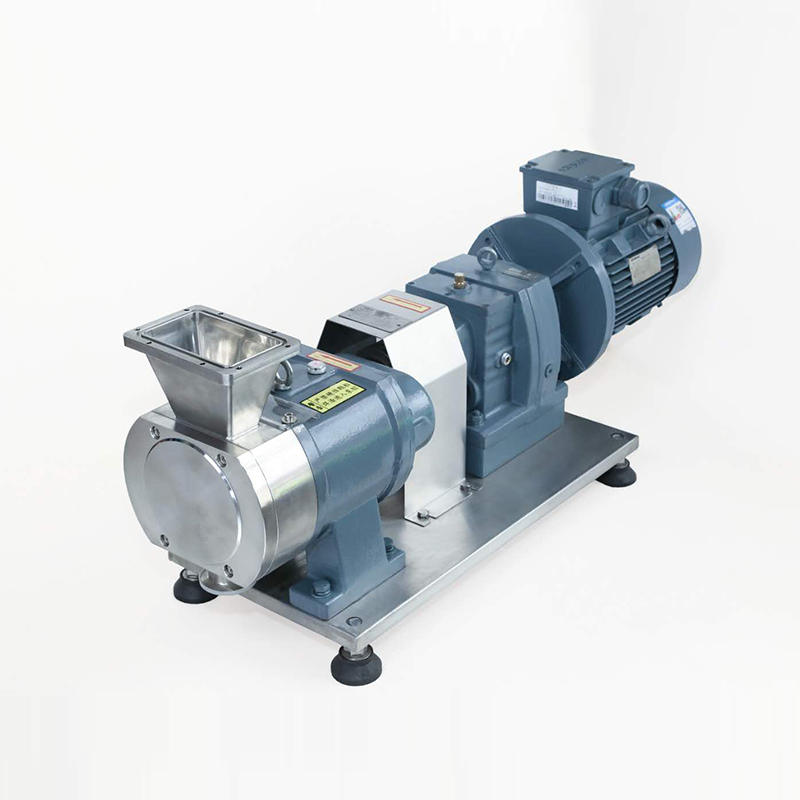In today’s industrial landscape, the demand for efficient and reliable pumping solutions has led many sectors to turn to specialized equipment like the lobe pump. Renowned for its ability to handle complex and sensitive fluids, the lobe pump has become a cornerstone in sectors such as food manufacturing, pharmaceuticals, chemicals, and wastewater treatment.
What Is a Lobe Pump and How Does It Work?
A lobe pump is a type of rotary positive displacement pump distinguished by its unique lobed rotors that mesh together to move fluids from one point to another. These rotors are typically designed with multiple lobes—most commonly two or three—that rotate within a casing. As the lobes turn synchronously, they trap fluid within the cavities created between the lobes and the casing, then transport it forward through the increasing space until it reaches the outlet. The pivotal feature of a lobe pump is its ability to transport high-viscosity fluids, solids-laden suspensions, and sensitive materials with minimal turbulence. The precise timing of the lobes ensures that the fluid is moved smoothly and without shear, which is especially vital in applications where product integrity is paramount.
Advantages of the Lobe Pump Design
The lobe pump stands out due to its combination of effectiveness, product safety, and operational flexibility. One of its main advantages is its ability to handle materials with high viscosity, including thick pastes, gels, and sludges, making it very valuable in handling viscous or abrasive substances. It also excels at pumping liquids that contain solids or particles, thanks to the large clearances between the lobes and the casing, which prevent clogging and reduce the risk of damage or blockages. Furthermore, the pump’s design allows it to operate under a wide range of pressures and flow capacities, giving users significant adaptability. The construction materials can be customized for chemical resistance, hygiene, or durability, depending on the specific application. Since the lobes are not in direct contact with the fluids at high speeds, the risk of product contamination or damage is minimized, making it an ideal choice for sensitive or sterile processes.
Applications of Lobe Pumps in Industry
Lobe pumps are indispensable in industries demanding precise and gentle fluid handling. In the food industry, they are used to transfer dairy products, oils, syrups, and fruit pulps, ensuring that the natural consistency and quality of the product are maintained. Their sanitary design is compliant with hygiene standards such as FDA and EHEDG, facilitating easy cleaning and sterilization. In the pharmaceutical field, lobe pumps are utilized for the transfer of active ingredients, biological cultures, and powders, where contamination-free processing is critical. Chemical manufacturing leverages their robustness to move corrosive or high-viscosity chemicals safely and efficiently. Waste treatment plants employ lobe pumps for handling sludge, grit, or other abrasive materials, thanks to their resistance to wear and ease of maintenance. Overall, the versatility of the lobe pump makes it suitable for challenging applications requiring reliability, sanitation, and precision.
Choosing the Right Lobe Pump
Selecting the appropriate lobe pump involves understanding the specific requirements of the application, including the type of fluid, flow rate, pressure, and hygiene standards. It’s essential to consider materials of construction, sealing options, and potential wear parts to optimize performance and lifespan. The availability of different rotor designs and sizes allows customization tailored to unique operational needs. Partnering with reputable suppliers like those featured at our website can assist in identifying the most suitable model for your industry, providing guidance on installation, maintenance, and additional features.
Conclusion
The lobe pump is a vital component in many industrial processes, combining efficiency, hygiene, and gentle handling to facilitate the safe and effective transfer of a wide array of fluids. Its adaptability to viscous, solids-laden, or delicate materials makes it a preferred choice across multiple sectors. By understanding its working principles, key advantages, and diverse applications, industries can optimize their operations and achieve higher productivity and quality standards. Exploring specialized providers like https://acelobepump.com can lead to discovering advanced solutions tailored to specific needs, ensuring the continued success of fluid transfer processes in modern manufacturing and treatment facilities.



